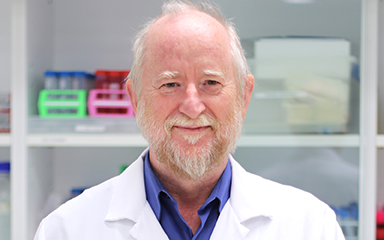Diabetes research is undertaken by The Centre for Diabetes Research at the Perkins. Our research is aimed at understanding and preventing diabetes and its complications. Diabetes is recognized as a major public health problem and is Australia’s fifth “national health priority area”. Diabetes is characterized by increased blood sugar levels, and has two major forms: Type 1 diabetes, which results from the person’s own immune system destroying the insulin-producing cells; and Type 2 diabetes, which results from the person’s growing inability to respond normally to insulin. Both forms of diabetes are caused by complex interactions between many genes and environmental factors. Our particular focus is on the genetics of Type 1 diabetes.
We are developing “systems genetics” technologies, which integrate multiple levels of data with underlying genetic information, allowing the definition of networks of interacting genes. These methods have allowed us to define “genetic signatures” that indicate a person’s risk of developing diabetic complications and other disease outcomes.
Our group is part of the world-wide Type 1 Diabetes Genetics Consortium, and led collaborative networks across Australia and the Asia-Pacific region in assembling resources to identify and characterise the genes which affect the risk of developing Type 1 diabetes. We also study animal models of type 2 diabetes and diabetes complications. Our work has resulted in the identification of genes affecting each form of diabetes in both humans and mice.
Our genetics breakthroughs can be applied to other diseases, such as cancer and heart disease. Finally, we established the world-leading genetic resource, The Gene Mine, which enables rapid discovery of genes for complex traits and development of new animal models of disease. The Gene Mine is particularly useful for making “systems genetics” discoveries.
The Centre for Diabetes Research gratefully acknowledges the support of the Diabetes Research Foundation of WA.
Research highlights
- Developed methods to define subtypes of Type 1 diabetes and Type 2 diabetes
- Developed methods to predict a person’s risk of disease outcomes, such as surviving melanoma; having a heart attack or stroke; or developing diabetic complications
- Performed proof-of-principle demonstration that The Gene Mine can provide rapid identification of genes mediating complex traits.

